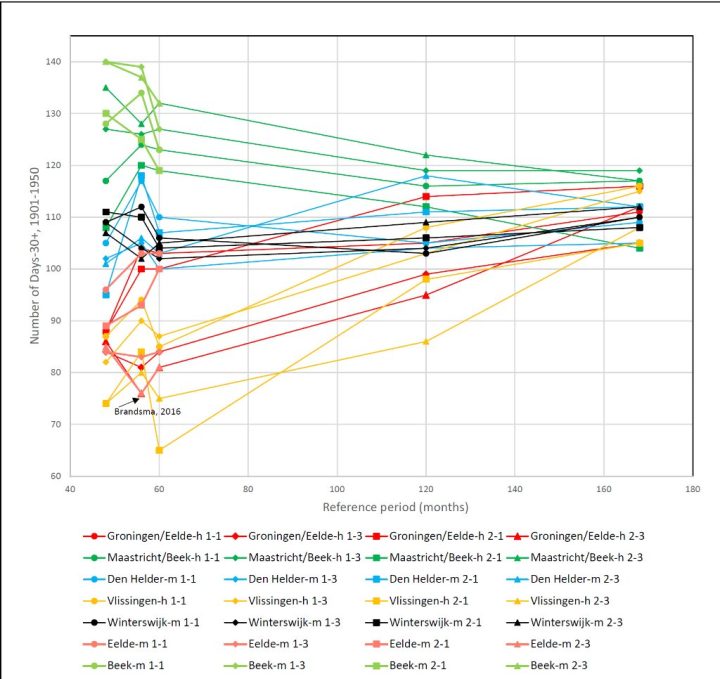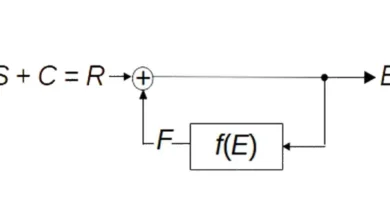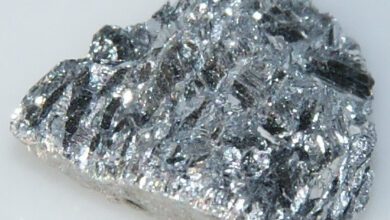KNMI has missed too many tropical days in De Bilt – Are you excited about that?

Dear readers of the CLINTEL newsletter, friends, benefactors,
As of 2018, we (Marcel Crok and three colleagues) are investigating daily temperature uniformity using KNMI. This homogenization – introduced in 2016 – eliminated many of the tropical days (days with T > 30 degrees Celsius) and heat waves during 1901-1950.
We announced this in a lengthy Dutch report in 2019. That report was ignored by KNMI and the media. We just went ahead and tried to publish it in a peer-reviewed Journal. At First Magazine, it was rejected after review. We revised and improved the article and submitted it to another Journal. We had to wait almost 1.5 years but this week it was published.
We hope you enjoyed the article. We made it open access, which is quite expensive now (2200 euros). If you like our work, we would welcome it your contribution. You can also become Clintel’s friend.
Below you find our press release with a link to the article.
Thanks,
Marcel Crok
Press release: KNMI removed too many tropical days in De Bilt

KNMI temperature correction gives a distorted picture of climate change in the Netherlands, especially during very warm days and heat waves
KNMI removed too many tropical days from the time period 1901-1950. This is the opinion of four Dutch researchers in one publication paper Today in science magazine Climatology theory and applications. The error arose because KNMI only used one station to fix De Bilt. The paper shows that the corrections become more reliable when more stations are used and the comparison time is longer.
In 2016, KNMI calibrated all temperatures measured daily at KNMI’s main stations (Groningen/Eelde, Maastricht/Beek, Vlissingen, Den Helder/De Kooy and De Bilt) for the period 1901-1950. This is necessary because of station relocation and adjustment of measurement settings. At four stations, measurements over an overlapping period are used to make corrections. There were no such measurements for De Bilt, so it was decided to calibrate De Bilt using the Eelde station, located 150 km northeast of De Bilt. During 1901-1950, this dramatically reduced the number of tropical days in De Bilt — days exceeding 30 degrees Celsius — from 164 to 76. As a result, many heatwaves also disappeared from the record.
An independent team of researchers, funded in part by the CLINTEL Foundation, attempted to reproduce the temperature corrections for De Bilt in 2019, and they came to the very best conclusion. report (in Dutch) that there was a significant overcorrection in tropical days. They have now repeated their analyzes using same data and with The same statistical analysis as KNMI was used. Their findings are published This week in the scientific journal Theoretical and Applied Climatology.
Exception
In Figure 2 of the paper, it is clear that De Bilt has become an outsider because of the KNMI edits:

Figure 2 from the paper: ratio of tropical days 1906-1949 to 1952-1995 at five main stations after KNMI correction. Dark gray is the original KNMI measurements, De Bilt light gray after KNMI correction.
Here tropical day rates are shown for the periods 1906-1949 and 1952-1995. A number greater than 1 means more tropical days occurred in the year 1906-1949 than in the equally long period 1952-1995. This is the case for the other four main stations, but De Bilt has deviated significantly.
Sensitive
The researchers examined the effect of several choices made by KNMI on the statistical process. These include the selection of reference stations, the length of the temperature series, calculating the statistical distribution of the highest daily temperatures per month, and how to smooth out outliers in the data. This suggests that almost all of the choices made by KNMI reduce the number of tropical days before 1950 by more. Figure 3 of the paper illustrates the problem:

Figure 3 from the paper: number of tropical days after correction based on 116 variants. KNMI shows only results labeled Brandsma, 2016 in the figure.
The y-axis shows the number of tropical days remaining in De Bilt after adjusting for the temperature. There were initially 164. It is clear that KNMI selection (Brandsma, 2016 pictured, resulting in 76 tropical days) was at the end of the range of 116 variants considered by the researchers.
By using a longer comparison period, the method converges to a narrower range, from 104-119 with a mean of 113. This is significantly higher than 76 according to KNMI. Therefore, the researchers do not say that this number is exact. This is just what you will get if you apply the method used more closely by KNMI.
It is worth noting that the various choices made are not described in Technical report KNMI about temperature correction. Therefore, KNMI did not show how sensitive the results were to the assumptions made.
Properly performed daily temperature correction in De Bilt is important for climate change assessment in the Netherlands. With the correction applied to De Bilt’s diurnal temperature during the first half of the last century, this was not possible. An alternative could be to keep historical data intact and derive climate trends from the individual data of all stations.
Presenter:
Frans Dijkstra, Rob de Vos, Jan Ruis, Marcel Crok (2021) – Reassessing uniformity of daily maximum temperature in the Netherlands since 1901 – Theoretical and applied climatology, 10 pp. https://link.springer.com/article/10.1007/s00704-021-03887-4
Frans Dijkstra, Rob de Vos, Jan Ruis, Marcel Crok (2019) – Het raadsel van de verdwenen hittegolven, second edition, October 2019, 93 pages.
Frans Dijkstra (2017) – Commentaar op de homogenisatie van de dagelijkse heatn van de KNMI hoofdstations – Met Meteorology December 2017, pages 4-7
About CLINTEL
The Climate Intelligence Foundation (CLINTEL) was founded in March 2019 by Professor Emeritus of Geophysics Guus Berkhout and science journalist Marcel Crok. Since then, CLINTEL has rapidly grown into a global organization in 36 countries with 23 ambassadors. CLINTEL would like to engage in a fundamental discussion with leading scientific organizations on energy and climate.
The shortest summary of CLINTEL’s vision is World Climate Declaration with the message “no climate crisis”. This declaration has now been signed by more than 950 scientists and experts.
Note:
Additional Info: Marcel Crok
From: Climate Intelligence Foundation (CLINTEL)
Websites:
https://clintel.nl
https://clintel.org
https://resinbeeld.nl




